
27 Nov, 2023
Hotelbeds MarketHub summit shows recovery is on a roll, but danger looms
Bangkok – The travel industry is awash with statistics celebrating the AC (After Covid) “recovery”. But the next crisis is already on the cards. While both trends were on display at the annual Hotelbeds MarketHub summit in Bangkok between 21-23 November, it was apparent that travel corporations and stakeholders are still operating within the traditional comfort zones rather than exploring ways to mitigate risks and offset threats.
Just under 400 delegates from across the Asia-Pacific and Middle East in Bangkok for the summit. Launched in 2009, the MarketHub now has been held three times in Asia, in Bali in 2019 and previously in Bangkok in 2017. The event brought together suppliers, hoteliers and representatives of industry associations and tech platforms for presentations and briefings on global, national, commercial and behavioural trends under the theme of “Where next for the tourism industry?”.

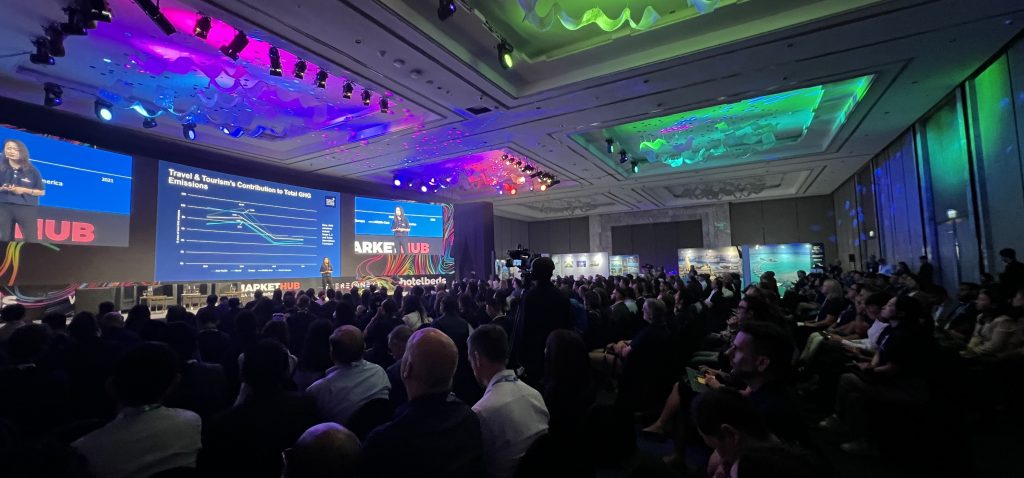
Presentations by PATA, WTTC, ForwardKeys and Google were bursting with chest-thumping statistics about the market rebound. However, of the roughly 200 slides showing the sunny-side-up scenario, only one slide highlighted the looming impact of the Middle East conflict, only one referred to “risks and challenges”, only one focussed on how travel can be a “force for good”, and only one referred to the need for businesses to “shift their mindsets.”
(Editor’s Note. I attended only Day One of the summit programme, but it was enough to get a feel for the industry agenda and the emerging issues going forward).
The session began with a realtime Mentimeter questionnaire to survey the delegates on what they felt had changed in the industry. These questions were posed.
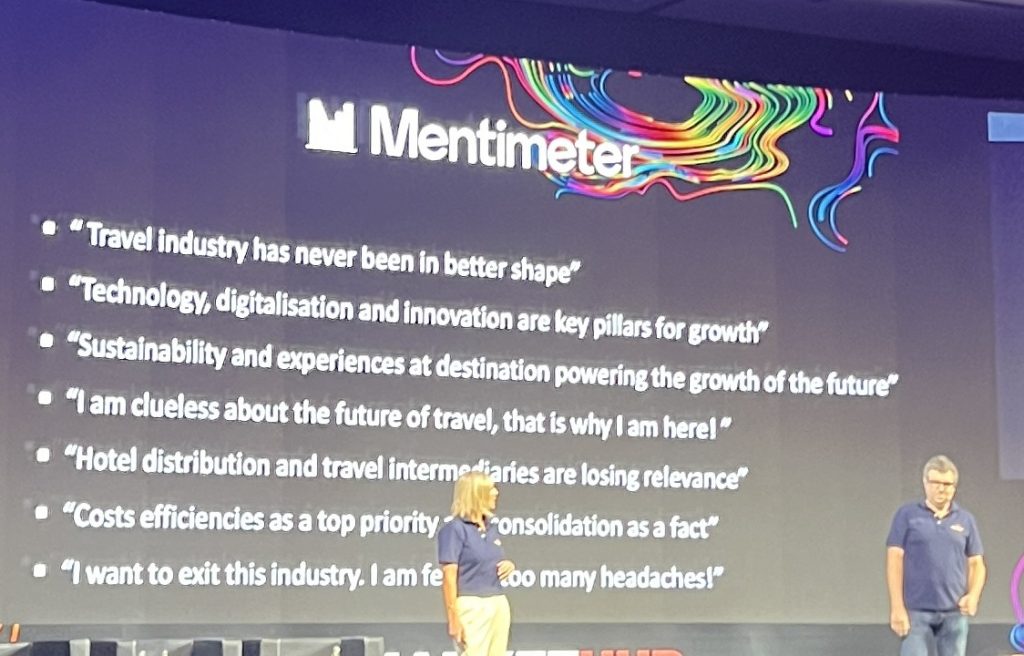
These were the responses, reflecting an overwhelming view that technology holds the solution to many problems. Sustainability was far behind.
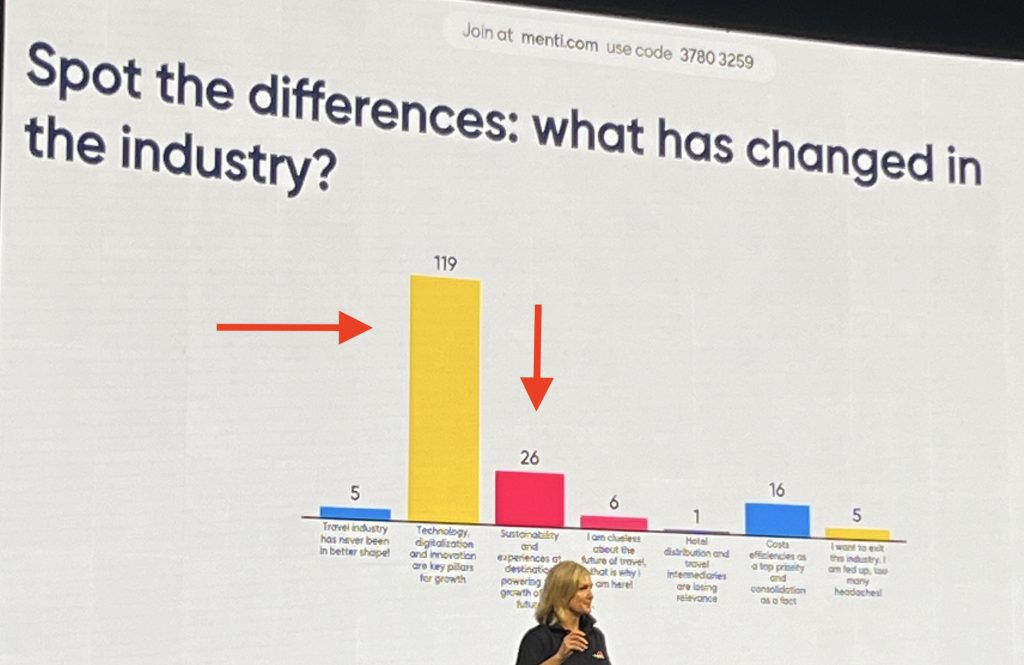
Pippa Williamson and Tomeu Gili, executives of the HBX Group, the owning company of Hotelbeds, then outlined how the company is adjusting its business model and modus operandi in response to changes in the operating environment.
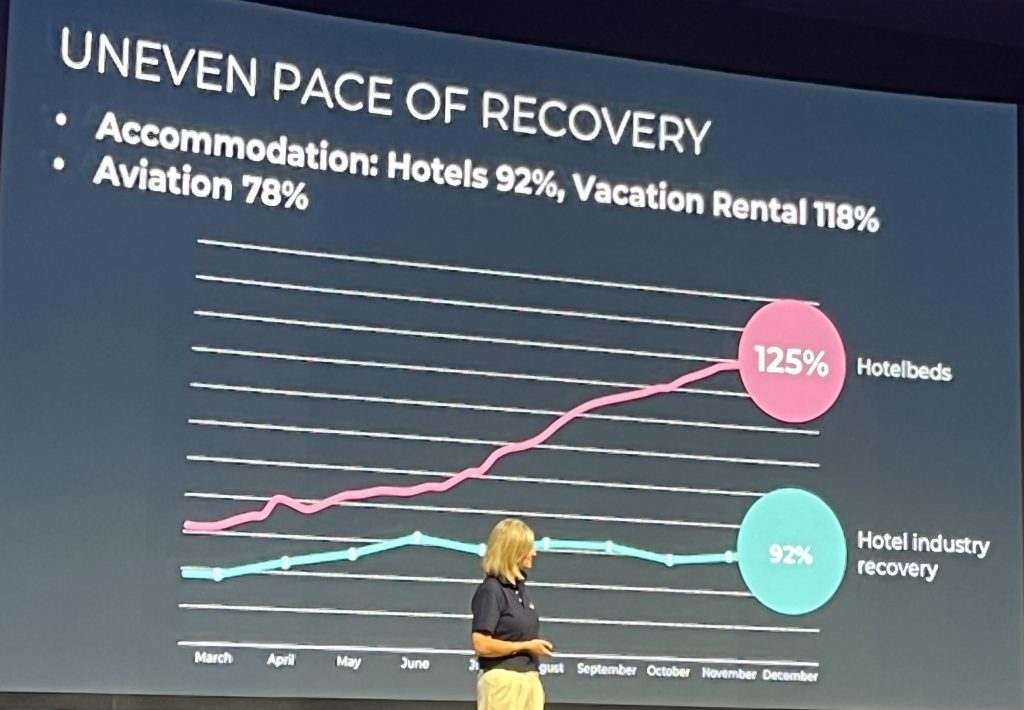
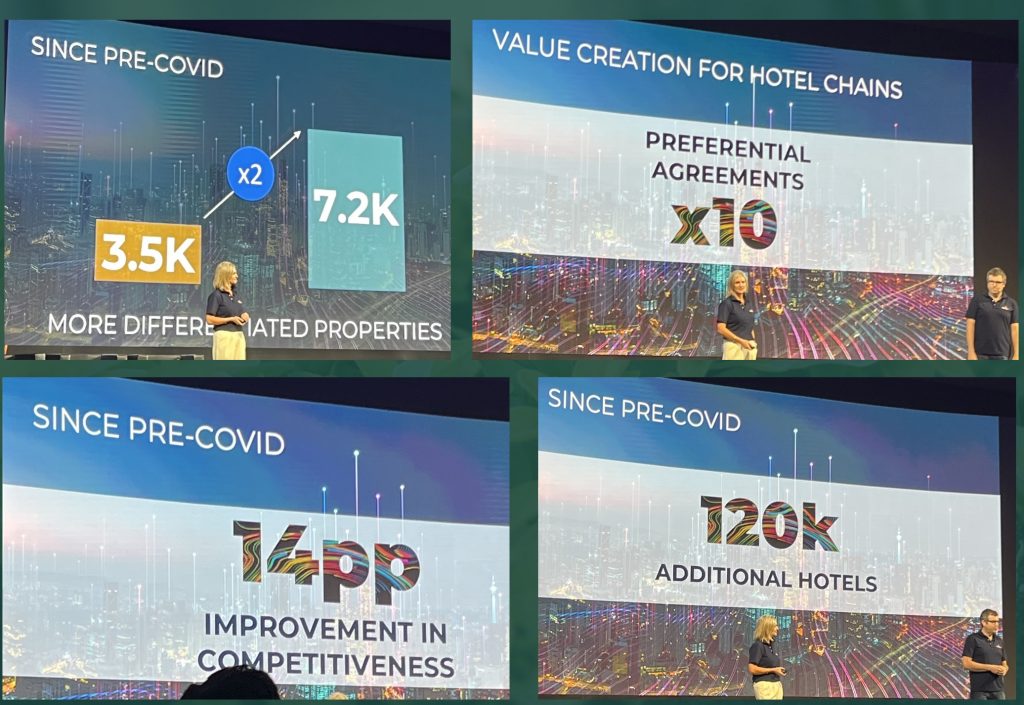
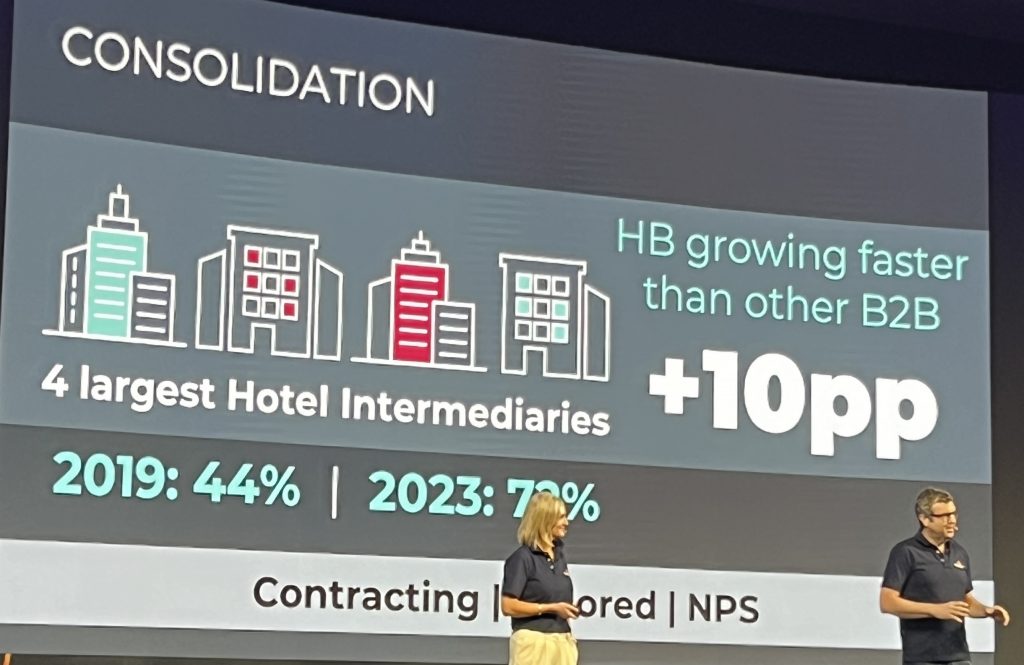
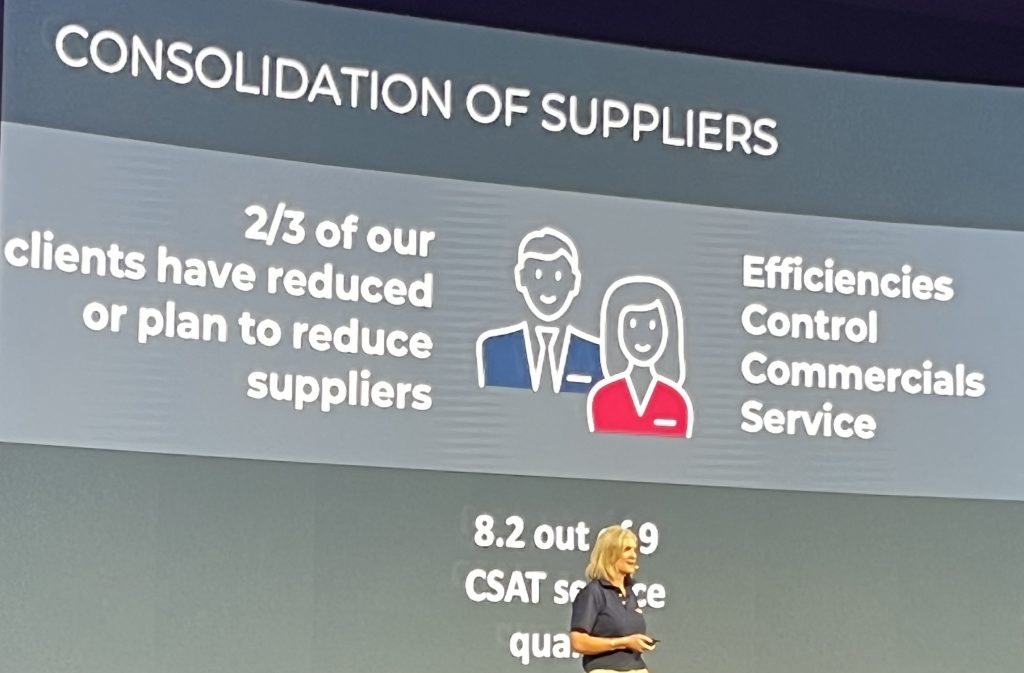
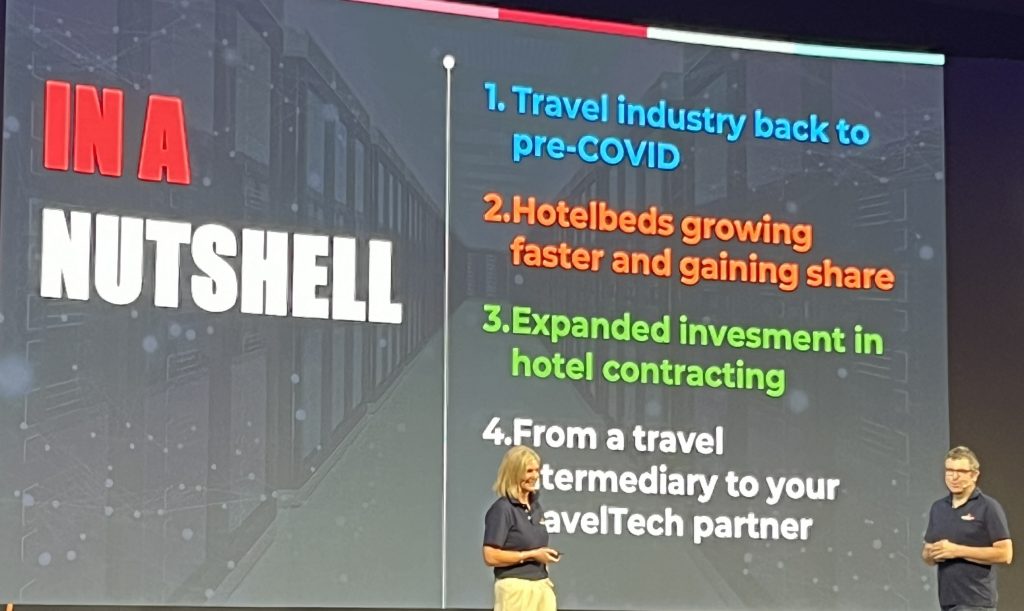
One critically important presentation was by Mark Antipof, Business Development Director, who discussed the “ecosystem” of the HBX Group. He highlighted the importance of leveraging the individual components of this ecosystem in pursuit of common solutions, which is one of the objectives of the MarketHub summit.
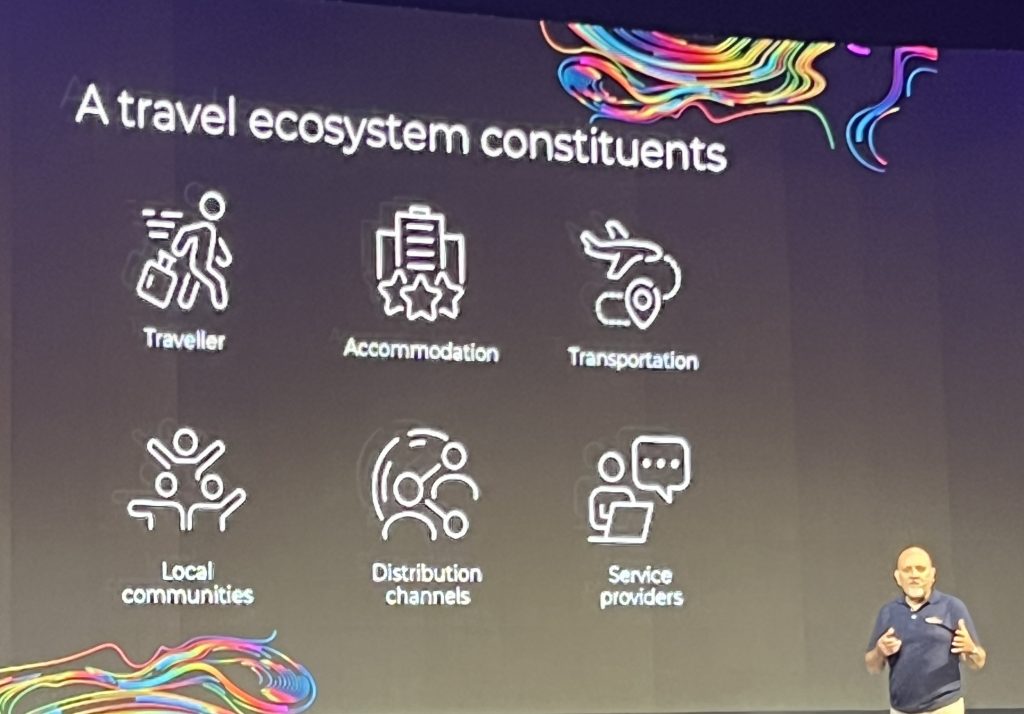
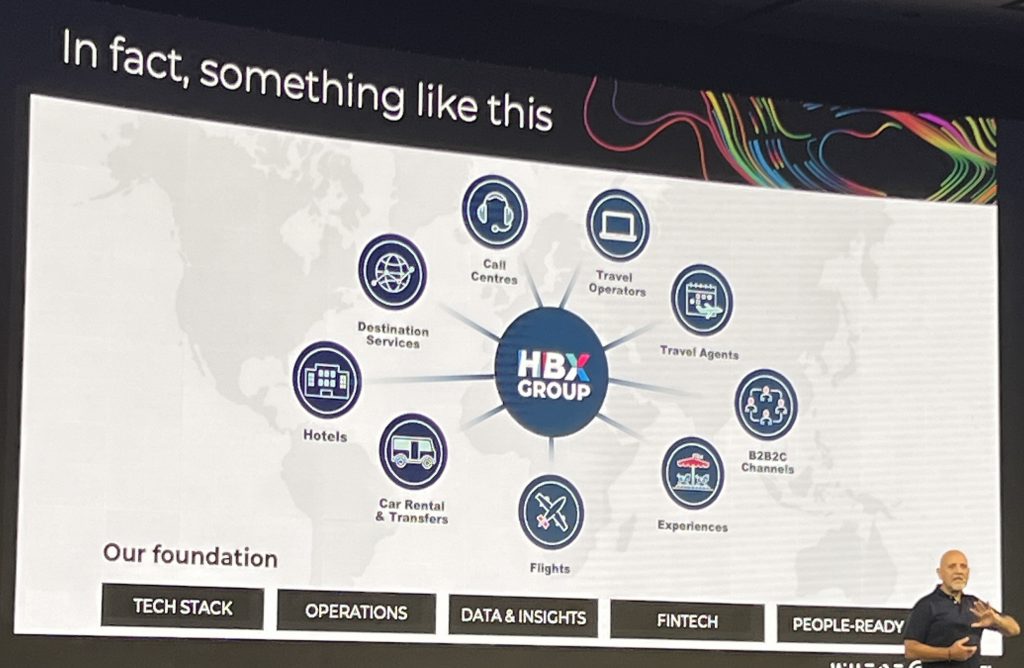

Then he showed this slide outlining the challenges and risks:
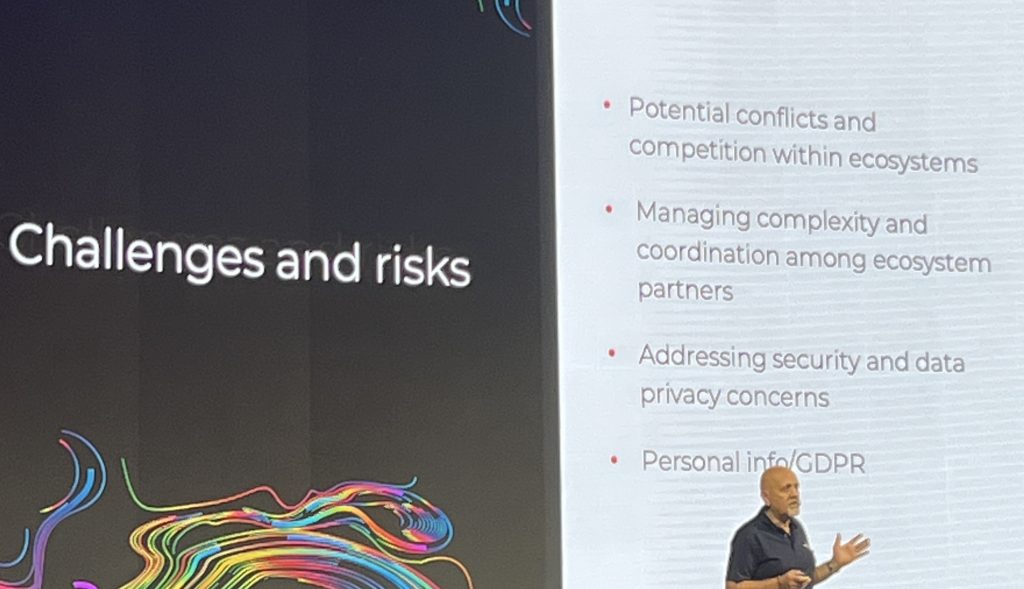
These risks and challenges can threaten the entire ecosystem, as they have in the past, but Mr Antipof offered these strategies for “effective ecosystem leverage.”
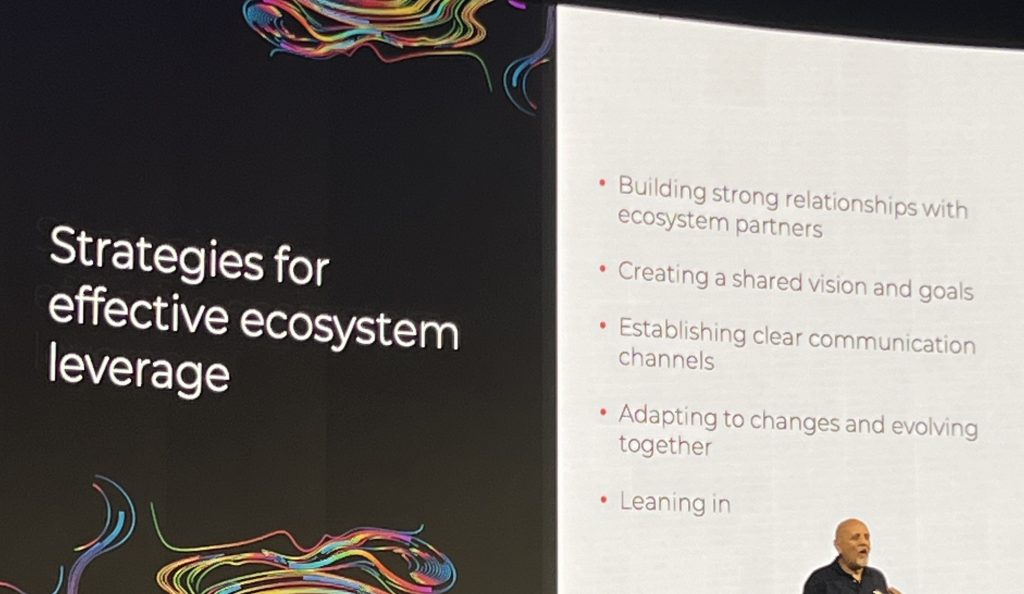
A presentation by Paul Pruangkarn, Chief of Staff of the Pacific Asia Travel Association, began with a slide highlighting PATA’s Vision to make tourism a force for good and a conduit for achieving the 5Ps of the UN Sustainable Development Goals.

However, most of the rest of his slides focussed on numerical growth trends. There were a few references to sustainability and no specifics on positioning tourism as a “force for good”.
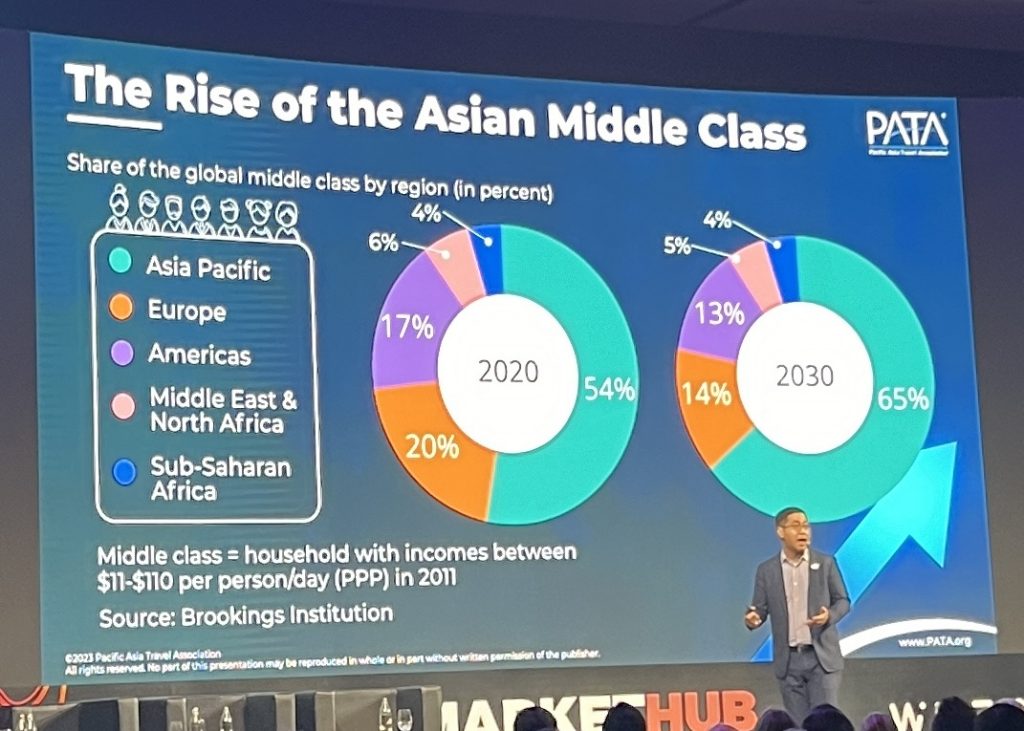
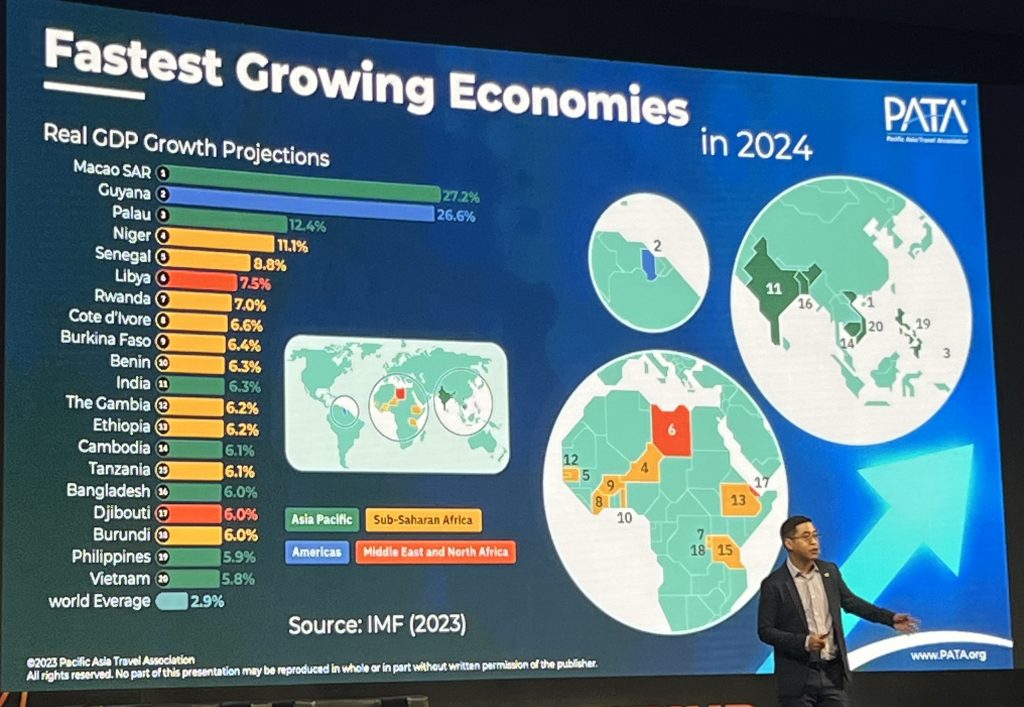
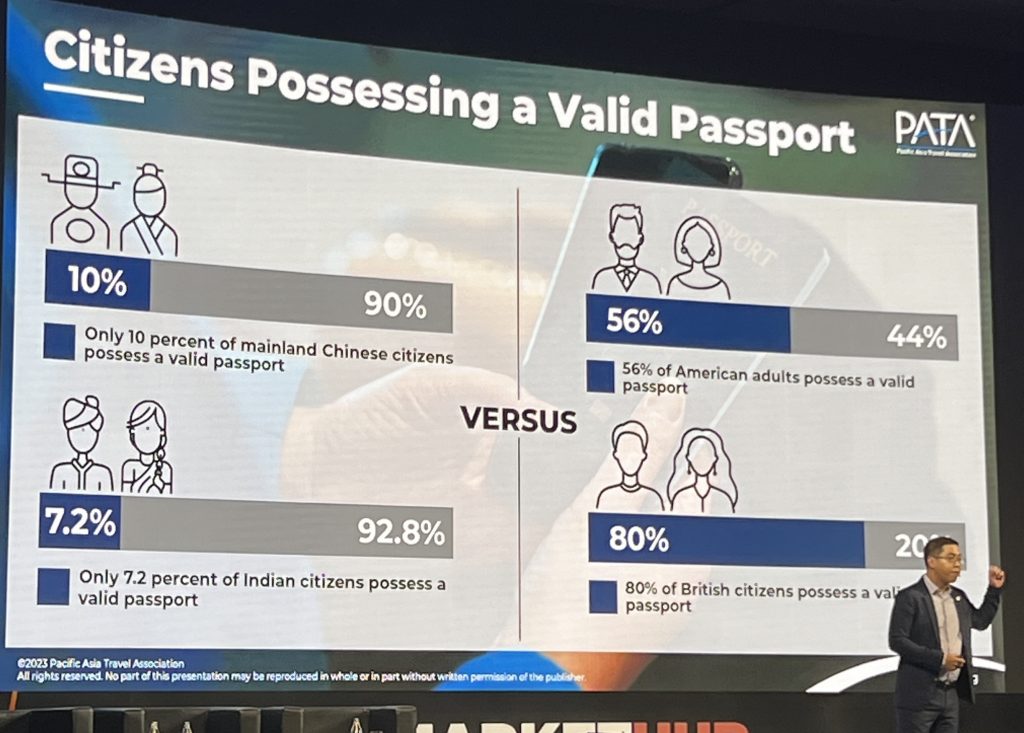
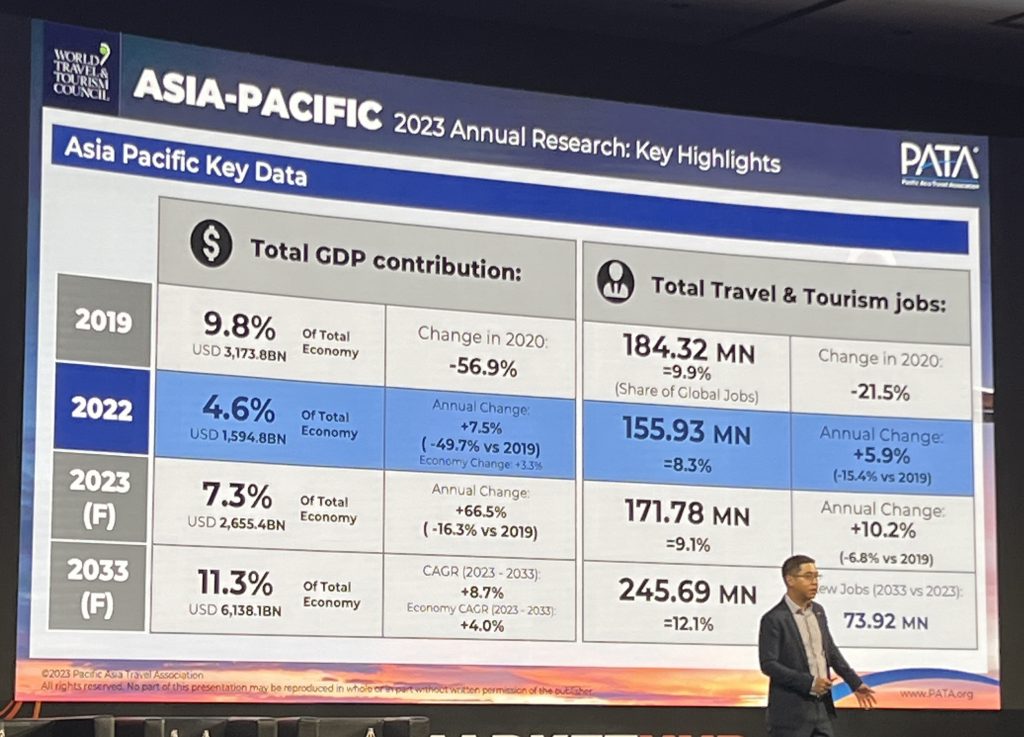
The first slide about the looming danger came from ForwardKeys which showed that the ongoing Middle East crisis is already having an impact.

A media release on the ForwardKeys website showed much more detail about the severity of this impact.

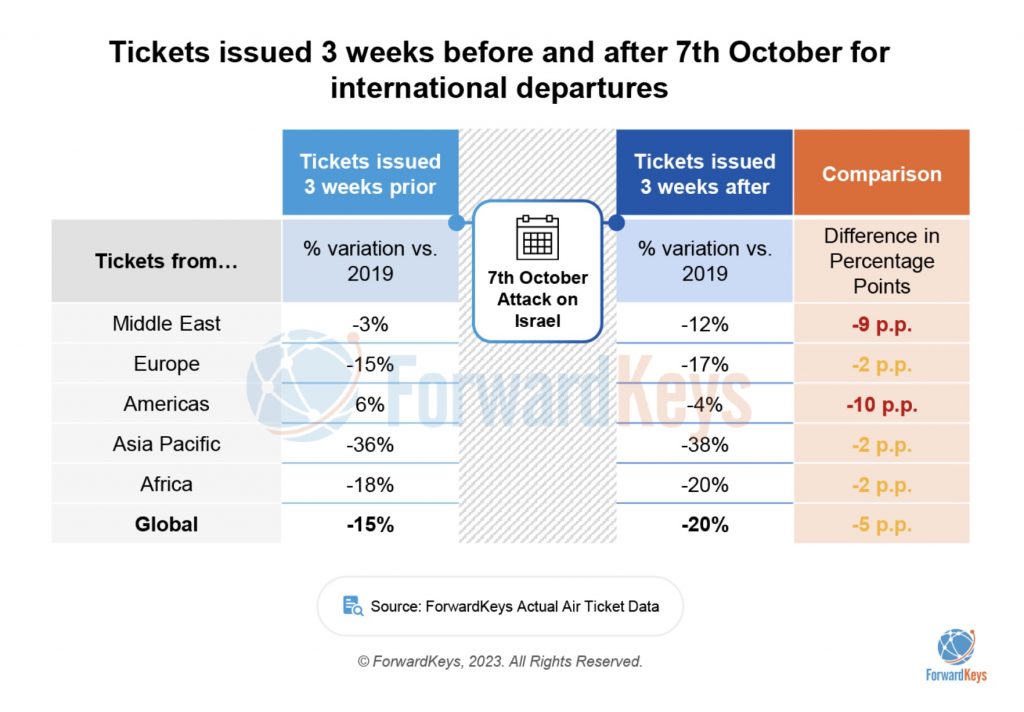

Another Forwardkeys slide showed the impact of the October 3 shooting of Chinese tourists in the Paragon shopping mall.
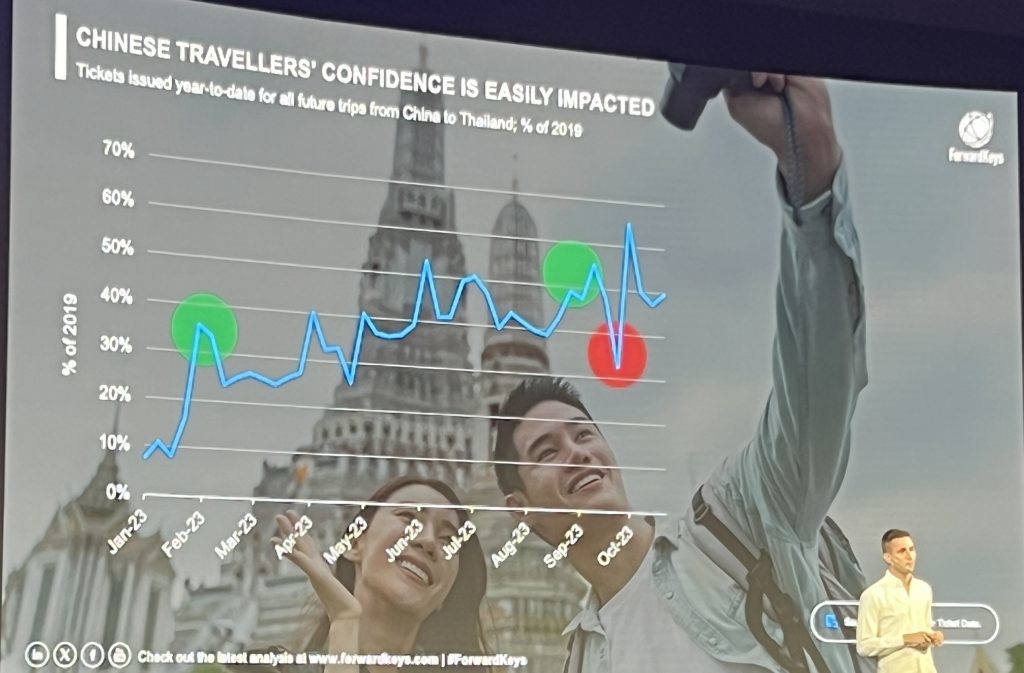
As health pandemics, natural disasters and geopolitical disasters and an assortment of other crises are now pretty much the “New Normal”, and their impact can be measured in real-time, Carlos Munoz, Chief Commercial Officer of the HBX Group, said that “safety and security is now non-negotiable”. The “opportunity” in these “crises” is to boost revenue by selling insurance.
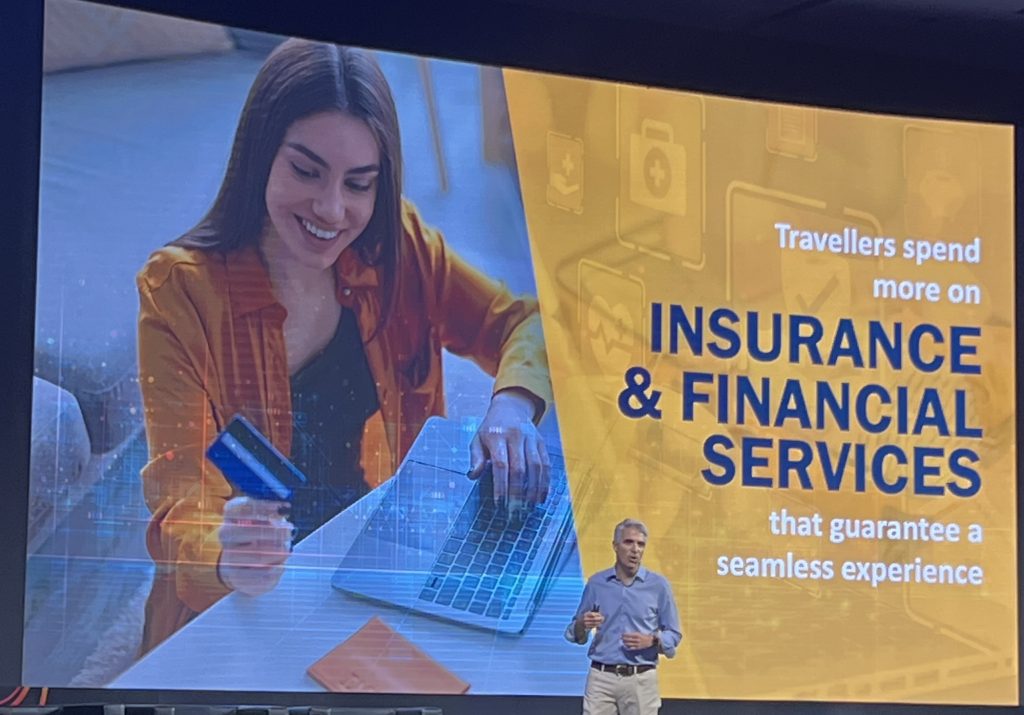
Elaborating on that, Mr Alex Stutely, Head of Insurance Strategy, said that while insurance has been sold historically, the key is to repackage the offering to “embed” it creatively in the sales process, and simplify it.
For example, technology enables an immediate check of the veracity of a flight cancellation claim. The insurance claim can then be paid out immediately, minus the paperwork. Reducing this bureaucratic hassle enhances the prospects of making the sale.
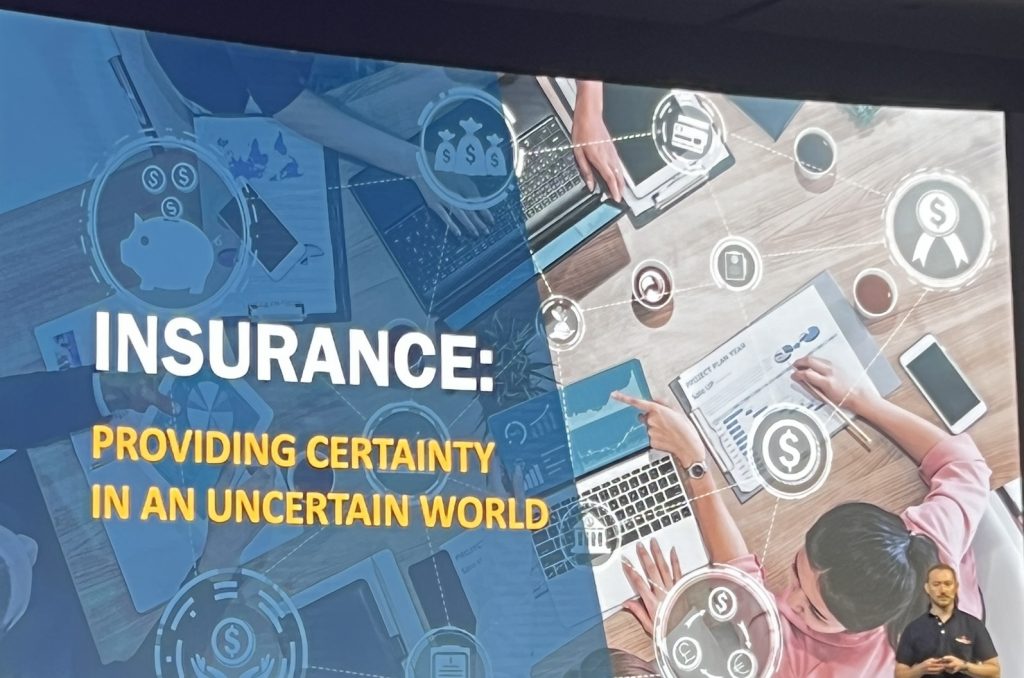
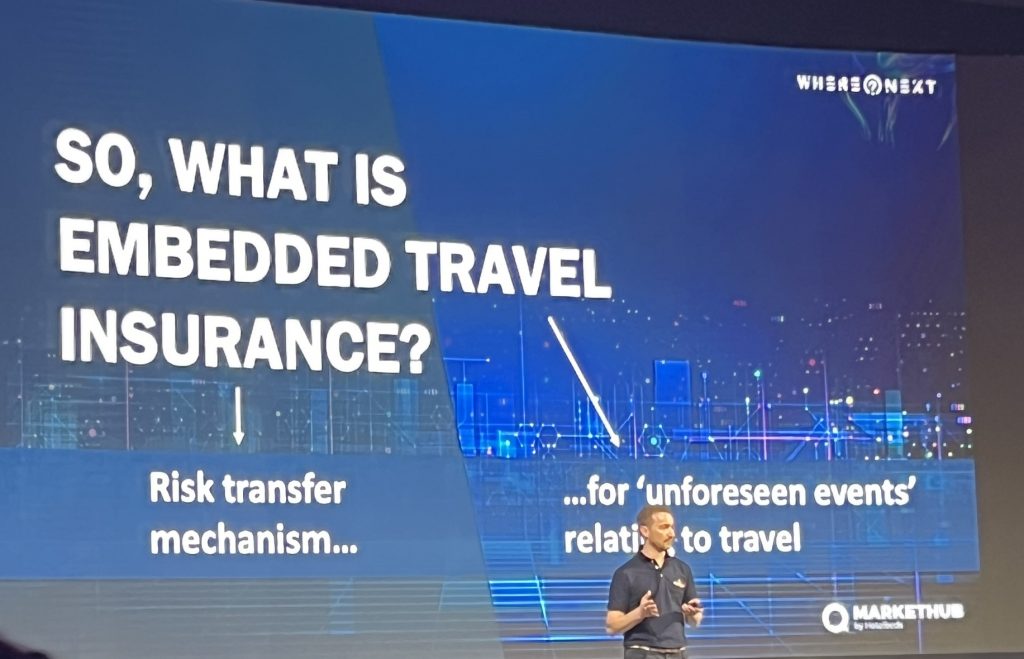
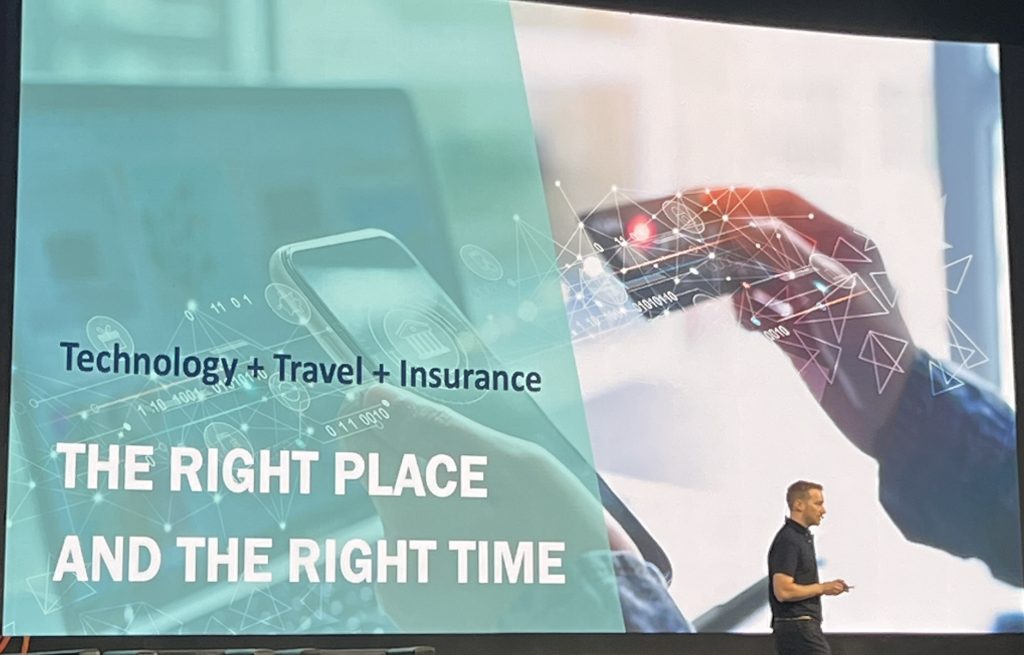
The day’s final presentation by Google Thailand called for a shift in mindset. The behemoth search engine is pushing AI, and the Client Solutions Manager of Google Thailand, Ms Chatkamol (Beau) Supanusonti, showed several slides flagging how Google plans to become a part of the solution.
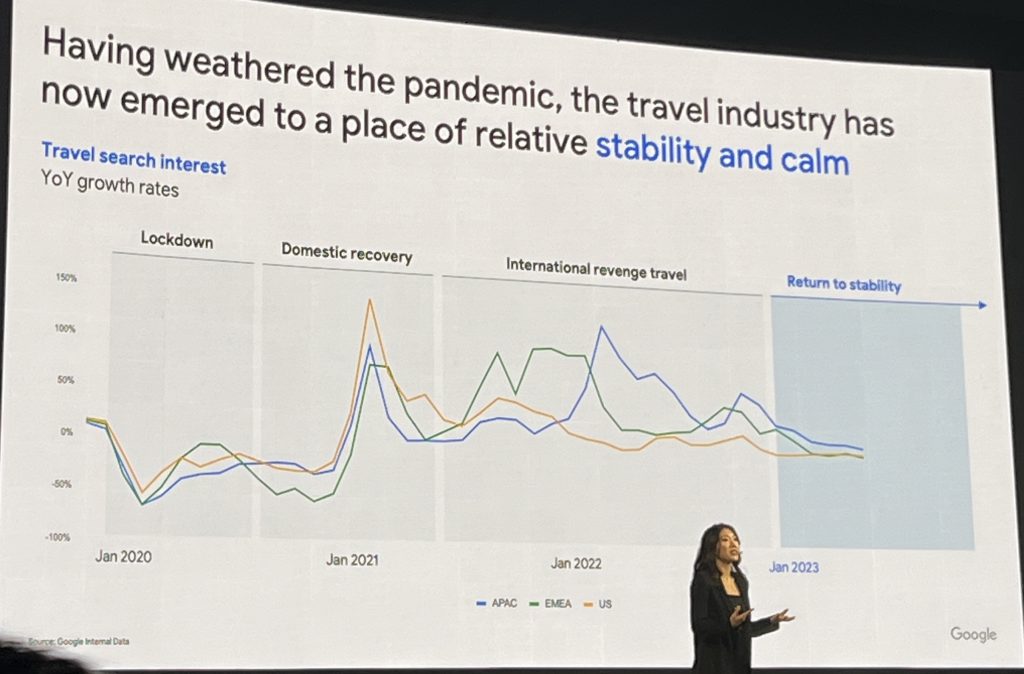
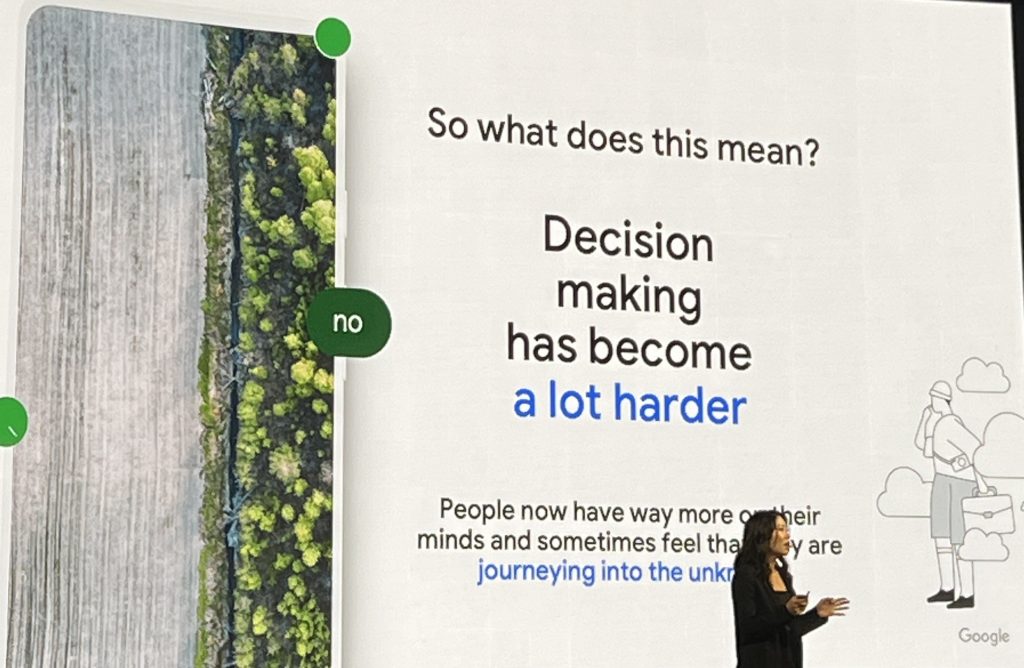
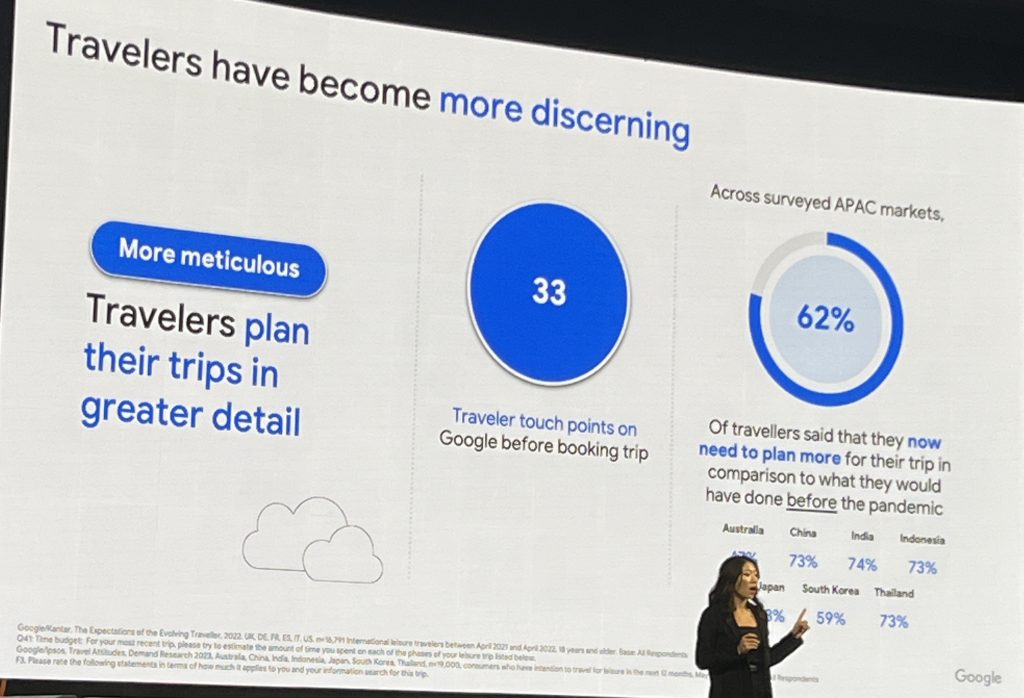
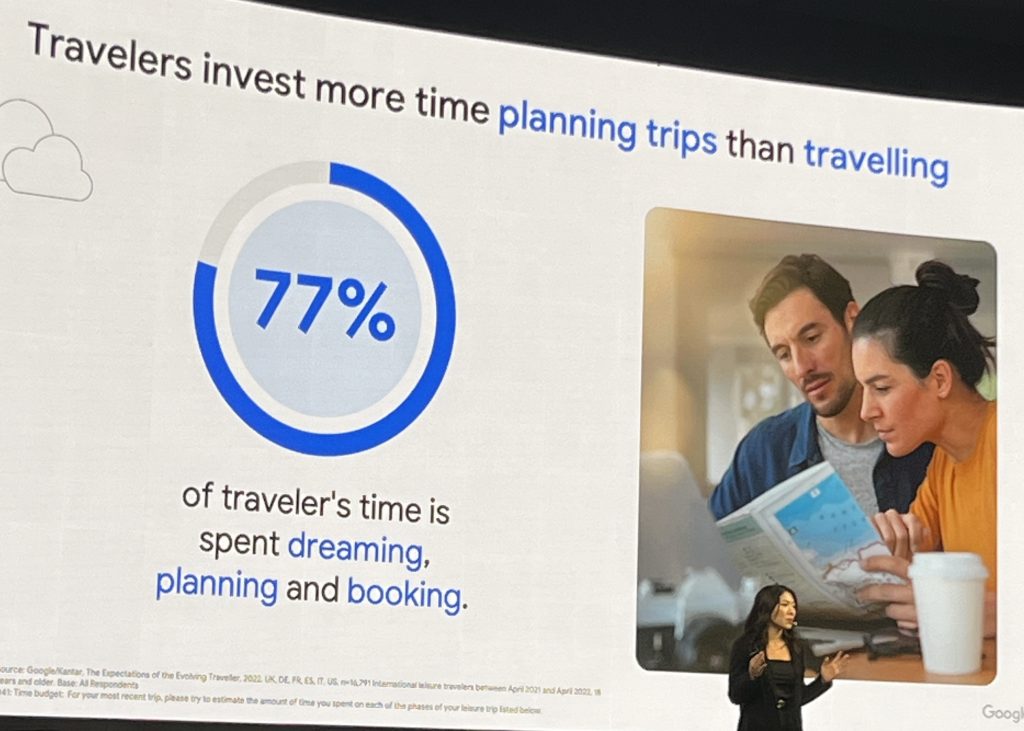
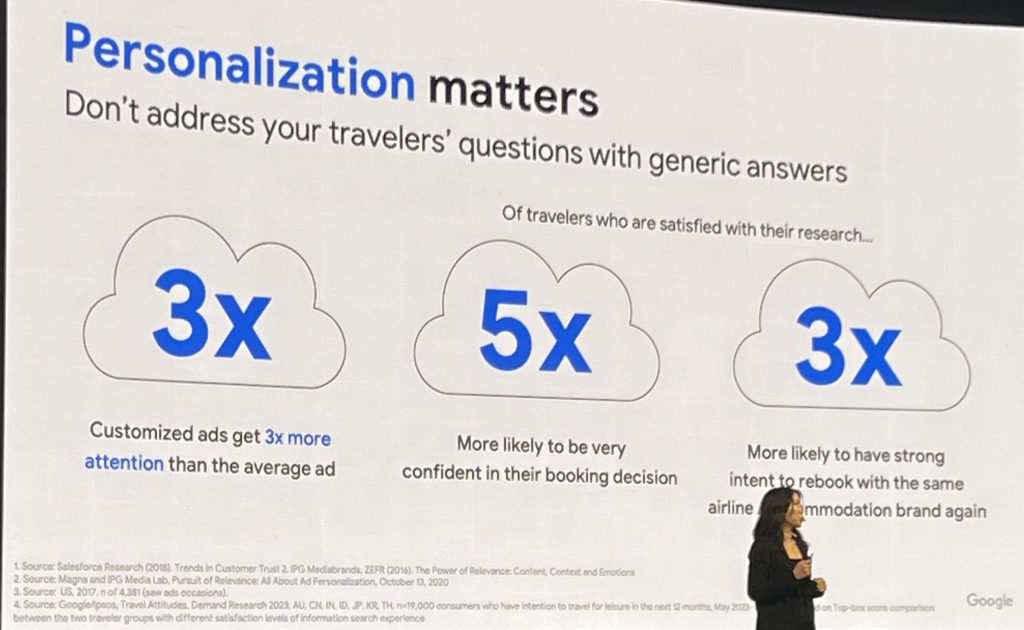
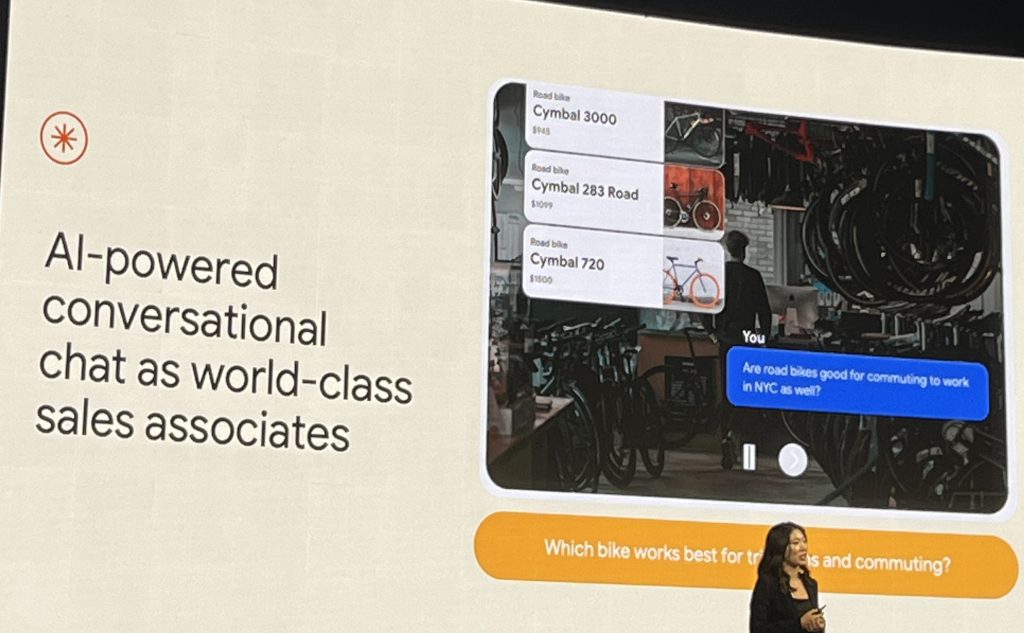
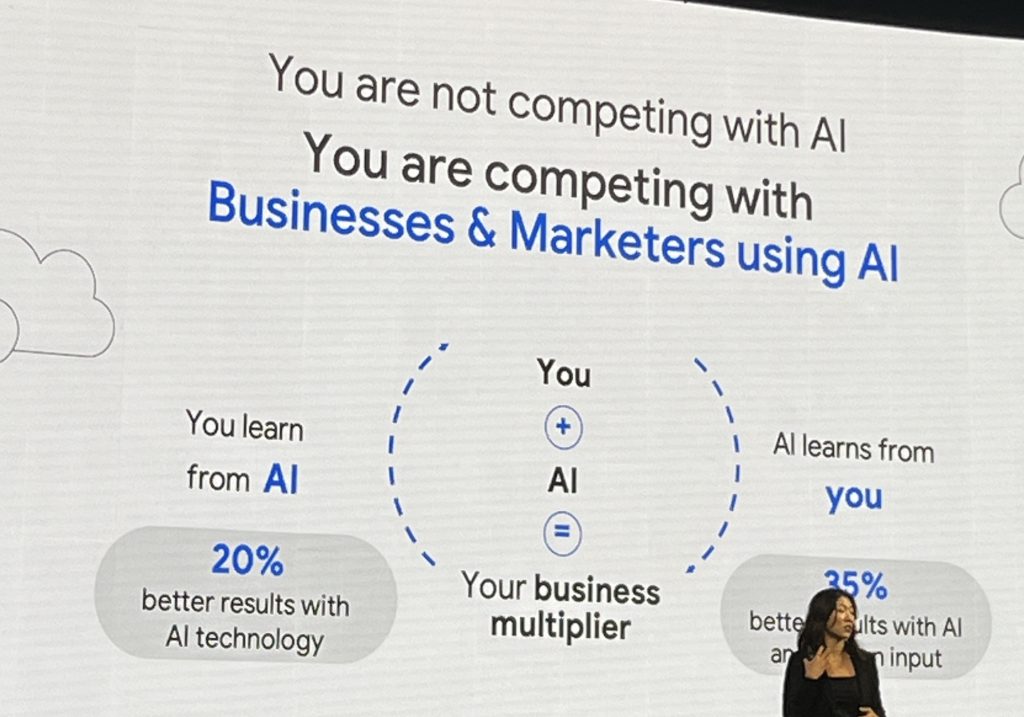
She called on business leaders to make a shift in mindset to embrace the emerging opportunities.
There was no mention of the many warning signs of the dangers of AI.
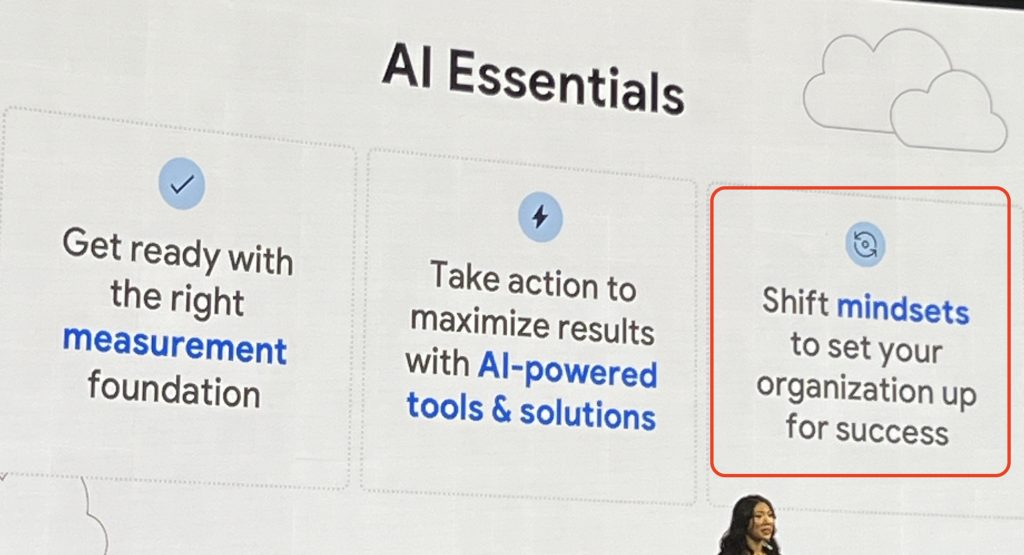
Key takeaways
The overarching objective of the MarketHub summit was to equip stakeholders with the requisite knowledge and tools to drive business. HBX Group executives explained how they have comprehensively adjusted their business model in line with the changes and multiple opportunities across the travel industry ecosystem.
But all these opportunities and changes are only as good as the next crisis, which as clearly flagged in the ForwardKeys presentation, is already in the works. It’s going to be wait and see for the next few days.
However, as I analysed the presentations, and weighed them against the multiple crises I have covered over the course of 42 years in travel journalism, I rued the fact that the more things change, the more they remain the same.
Travel & tourism entities across the board prefer to bask in the glory of post-crises “recovery and resilience”. Scant, if any, attention is paid to learning the lessons of history, taking a deeper look at the various “risks and challenges” and pursuing more permanent solutions.
As indicated in the responses to the Mentimeter survey, the prevailing view is that “technology” is a quick-fix. Its myriad of downsides are fleetingly discussed even though they, too, have a significant impact on business and deserve to be factored in the decision-making “ecosystem”.
The shift in mindset really required is for the “ecosystem” highlighted by Mr Antipof to be broadened significantly in depth and breadth beyond just the mechanics of doing business.
Otherwise, the Travel & Tourism industry is only treating the symptoms and not the cause.
And that can never contribute to long-term safety, security or sustainability.



Liked this article? Share it!